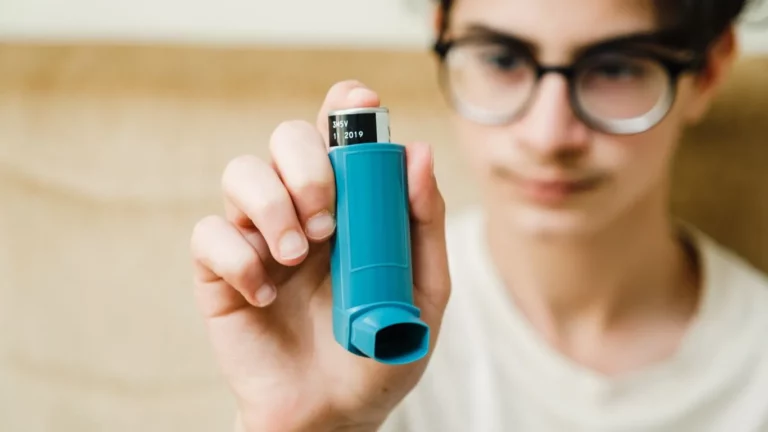Can Asthma Cause Ear Sounds? What You Need to Know
Hi there! I’m Dr. Maya Santoso, an ENT specialist with over 15 years of experience helping patients navigate respiratory and ear‑related issues. Today, we’re diving into a question many ask during asthma flare‑ups: Can asthma cause sounds in your ears while breathing? Let’s explore this together in a friendly, informative Q&A format.
Q1: What kind of “sound in the ear” are we talking about?
Dr. Maya: Great starting point! People often describe it as a whooshing, echoing, or even a pulsing noise—especially during heavy breathing. It’s different from classic tinnitus; it’s more linked to airflow or pressure shifts in the ear.
Q2: How can asthma lead to ear noises?
Dr. Maya: Asthma causes inflammation, tight airways, and mucus production in the lungs. In severe cases, that creates strong negative pressure in the chest and throat—potentially affecting the Eustachian tube, which connects the ear to your throat. When that tube isn’t equalized, airflow or pressure changes can cause sound sensations in the ear.
Q3: Is this a common symptom of asthma?
Dr. Maya: Not exactly a hallmark symptom, but it does pop up, especially in eosinophilic asthma—a subtype linked to ear symptoms. One study found breathing-related ear sounds reported by patients with that form of asthma (WebMD, NCBI) :contentReference[oaicite:1]{index=1}.
Q4: What other conditions can cause similar ear sounds?
Dr. Maya: You’re smart to ask—other causes include Eustachian tube dysfunction (like after a cold or allergies), TMJ issues, vascular sounds near the ear, and GERD (acid reflux) sometimes travels up to affect the ear :contentReference[oaicite:2]{index=2}.
Dr. Maya: Look at the context. If the noise occurs only during an asthma flare—especially right after inhaling deeply or using a nebulizer—it’s likely asthma-related. If it’s constant, happens with swallowing, or comes with ear fullness, we’d evaluate your ear and Eustachian tube specifically.
Q6: Should I worry if I hear noise in my ears during an asthma flare?
Dr. Maya: Usually, no—it’s not dangerous by itself. But don’t ignore it—if it’s loud or persistent, see your doctor. A combined lung-and-ear assessment may be needed to ensure no underlying issues like infection or dysfunction.
Q7: Can treating my asthma help reduce ear sounds?
Dr. Maya: Absolutely. Managing asthma—using inhalers to reduce inflammation and control flares—can ease chest pressure and help the Eustachian tube function better. As airflow normalizes, so might those ear noises.
Q8: Do inhalers or asthma meds make ear sounds worse?
Dr. Maya: Most inhalers don’t directly cause ear noises. However, oral steroids or certain meds can aggravate reflux (GERD), which sometimes impacts ear pressure. If you notice reflux symptoms, let your provider know—we can adjust meds or add reflux treatment.
Q9: When should I see a specialist?
Dr. Maya: If ear noises are frequent, bothersome, or coming with fullness, hearing changes, pain, or popping, book an ENT evaluation. You may also need allergy testing or reflux evaluation depending on what we find.
Q10: Any recommendations I can do at home?
- Sip warm liquids to ease airway tightness.
- Use a humidifier during a flare to reduce mucus thickening.
- Try gentle Eustachian tube exercises (like the Valsalva maneuver) if your ear feels blocked.
- Stay consistent with your asthma action plan.
- If reflux is suspected, avoid spicy meals before bed.
Final Thoughts from Dr. Maya
So, yes—while uncommon, asthma can sometimes lead to ear sounds due to pressure and mucus effects on the Eustachian tube. The good news? Managing your asthma effectively usually calms everything else down. And if the noises stick around, an ENT evaluation will help untangle the cause.
If you’ve experienced this—or have any follow‑up questions—don’t hesitate to reach out to your healthcare provider. Your ears and lungs deserve a little extra care!
Curious to learn more? Check out general resources on asthma at mayoClinic.org and lung‑ear connections at webMD.com.
Take care and breathe easy! 😊

Bianca Nala is a compassionate Nurse Practitioner with a strong background in primary and respiratory care. As a health writer for Healthusias.com, she combines her clinical expertise with a talent for clear, relatable storytelling to help readers better understand their health. Bianca focuses on topics like asthma, COPD, chronic cough, and overall lung health, aiming to simplify complex medical topics without losing accuracy. Whether she’s treating patients or writing articles, Bianca is driven by a single goal: making quality healthcare knowledge accessible to everyone.







